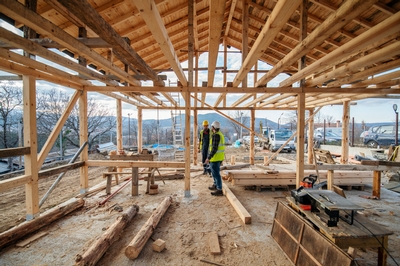Understanding General Contractor Liability for Subcontractor Injuries on New Jersey Construction Projects
Related Attorney: Timothy E. Dinan
February 21, 2024
In the bustling world of construction, where projects soar and structures rise, the safety and well-being of workers are paramount. However, despite stringent safety protocols, accidents can still occur. When a subcontractor worker is injured on a construction site in New Jersey, questions about liability often arise, particularly concerning the responsibilities of the general contractor.
New Jersey, like many states, operates under specific laws and regulations governing construction site safety and liability. Under New Jersey law, general contractors have a duty to provide a safe working environment for all workers on their construction projects, including subcontractors and their employees. This duty encompasses ensuring compliance with state and federal safety standards, providing proper training, and maintaining a hazard-free work environment.
When a subcontractor worker is injured on a construction project, several factors come into play in determining liability:
- Control and Supervision: One key aspect is the level of control and supervision exerted by the general contractor over the worksite. If the general contractor exercises significant control over the work being performed, they may bear a higher degree of responsibility for ensuring safety and preventing accidents.
- Contractual Agreements: The terms of the contract between the general contractor and the subcontractor can also influence liability. Typically, contracts outline the respective responsibilities of each party regarding safety protocols, insurance coverage, and indemnification.
- Negligence: If the injury resulted from the general contractor's negligence, such as failing to address known hazards or inadequately supervising the worksite, they may be held liable for damages.
- Non-delegable Duty: In some cases, the law imposes a non-delegable duty on the general contractor to ensure the safety of all workers, regardless of whether the responsibility is explicitly delegated to subcontractors.
In New Jersey, the legal doctrine of "comparative negligence" may also come into play. This means that if both the general contractor and the subcontractor share fault for the injury, liability may be apportioned based on each party's degree of fault.
To mitigate liability and promote safety on construction sites, general contractors in New Jersey should:
- Conduct regular safety inspections and address any hazards promptly.
- Provide adequate training and supervision for all workers.
- Ensure compliance with state and federal safety regulations.
- Maintain comprehensive insurance coverage and enforce contractual provisions related to safety and indemnification.
In conclusion, general contractor liability for subcontractor injuries on construction projects in New Jersey is a complex legal matter influenced by various factors. By prioritizing safety, adhering to regulations, and fostering a culture of accountability, contractors can help prevent accidents and protect the well-being of all workers on-site.
Questions? Contact Tim Dinan at tdinan@lcrlaw.com, or (973) 729-1880.
See our previous blog post here.


















